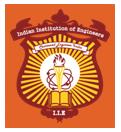THE ACADEMIC PROGRAMME OF THE INSTITUTION MAINLY CONSISTS OF SECTIONS ‘A & B’ EXAMINATIONS, POPULARLY KNOWN AS THE AMIIE EXAMINATION.
DIPIIE in Electrical & Electronics Engineering
Information For:
- Home
- Examination
- R&D
- Application Status
- Apply Membership Online
- RTI Information & Reply
- Awards
- Become Student's Chapter
- Online Verification
- Placement Service
- Alumni Association
- Approval & Recognition
- AMIIE(B.Tech./B.E.)
- DIPIIE-DMIIE-TMIIE(Diploma)
- List of Student's Chapter
- Our Vision
- Circular/Notice/Tender
- Hall Ticket
- Examination Result
- Vacancy & Career
- Global Linkage
- Downloads
Key Highlights of the AMIIE
- Project based learning through industry collaborations.
- Focus on skill building & practical implementations.
- Interactive sessions with industry experts through Student's Chapter.
About
Electrical & Electronics Engineering involves the design, development, and application of electrical systems and electronic devices. Engineers work on power generation, communication systems, control systems, and electronics like microprocessors and semiconductors. The field combines principles of electricity and electromagnetism to create efficient, reliable, and safe solutions in industries such as energy, telecommunications, manufacturing, and consumer electronics.
Career
A career in Electrical & Electronics Engineering offers a wide range of opportunities across various industries such as energy, telecommunications, electronics, manufacturing, and automation. Electrical engineers design and develop electrical systems, while electronics engineers focus on devices, circuits, and systems that use electricity to perform specific tasks.
Key roles include electrical engineer, electronics engineer, telecommunications engineer, power systems engineer, and control systems engineer. Electrical engineers often work on power generation, transmission, and distribution systems, while electronics engineers design and improve devices like smartphones, computers, and semiconductors. Telecommunications engineers specialize in communication networks, including satellite, wireless, and fiber-optic technologies.
Professionals in this field may also work with renewable energy technologies, such as solar and wind power, or focus on automation and robotics in manufacturing. The career requires a strong foundation in mathematics, physics, and computer systems, along with problem-solving and innovation skills.
A degree in electrical or electronics engineering is typically required, and advanced degrees or certifications may help in advancing to senior positions. Electrical and electronics engineers enjoy competitive salaries, job stability, and opportunities for career advancement, especially as industries evolve with new technologies.
Job Prospects
Job prospects in Electrical & Electronics Engineering are strong, with demand across industries like energy, telecommunications, automation, and electronics manufacturing. Engineers can work in roles such as power systems, communications, control systems, and embedded systems design.
Remuneration
Electrical and Electronics engineers typically earn between $70,000 and $110,000 annually, depending on experience, location, and specialization. Senior engineers or those in high-demand fields like telecommunications, power systems, or embedded systems can earn over $120,000, with additional benefits.
Section-A
Section-B
- STRENGTH OF MATERIALS
- FLUID MECHANICS
- MATERIAL SCIENCE & ENGINEERING
- WORKSHOP TECHNOLOGY
- ENVIRONMENTAL ENGINEERING
- METROLOGY
- TECHNICAL ENGINEERING DRAWING
- ESTIMATING & COSTING
- DIGITAL ELECTONICS
- ELECTRICAL CONTROL SYSTEM
- ELECTRICAL DEVICE & CIRCUIT
- ELECTRICAL MACHINES
- ELECTRICAL TECHNOLOGY
- ELECTROMAGNETIC FIELD THEORY
- NON-CONVENTIONAL ENERGY SOURCES
- THEORY OF MECHANICAL ENGINEERING
- TRANSMISSION & DISTT. OF ELECT.
- UTILIZATION OF ELECTRICAL ENERGY
What Is AMIIE?
Full form of AMIIE is “Associate Member of the Indian Institution of Engineers”. AMIIE is a professional certification given by Indian Institution of Engineers (IIE).

